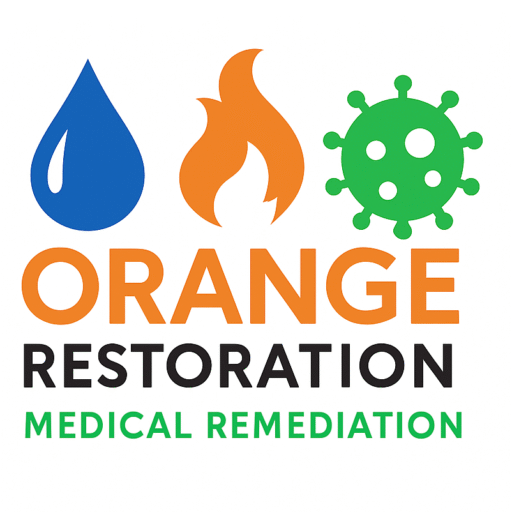If you have mold sensitivity or chronic illness, DIY mold cleanup is not recommended. Disturbing mold without proper containment and filtration can release spores and toxins into the air, increasing exposure. Instead, work with professionals trained in medically sound remediation to ensure your environment is safe.
Many cases of secondary mold start with DIY attempts or inexperienced contractors skipping critical steps. Even well-intentioned efforts can create bigger problems. The best safeguard is to invest in a professional assessment, proper mold testing, and a detailed scope of work from a qualified inspector before remediation begins.
Mold doesn’t just damage your walls or cause a musty smell. Mold impacts our health and can even make our bodies a host to mold spores and VOCs. –The Medically Sound Remediators
Pro Tips for Medically Sound Mold Remediation
At Orange Restoration, we know that medically sensitive clients require more than basic mold cleanup. If you’re concerned about mold’s impact on your health, these are the three non-negotiables for true safety:
Pro Tip #1: Never Skip the Drying Phase
Even the best cleaning fails if hidden moisture remains. Professional moisture mapping and thermal imaging confirm materials are truly dry before walls are closed or repairs completed.
Pro Tip #2: Containment Is Non-Negotiable
Improper containment spreads mold spores and toxins throughout your home. Ensure your contractor uses negative air machines, HEPA filtration, and strict cross-contamination protocols every time.
Pro Tip #3: Testing Verifies, It Doesn’t Assume
Every medically sound remediation project should end with third-party post-remediation verification (PRV) testing. Skipping this leaves you guessing whether ultrafine particles, spores, or toxins are still present.
For those with CIRS, mold sensitivities, or chronic conditions, these steps aren’t optional–they’re essential. Our team follows CIRSx-certified protocols to ensure your environment is safe, clean, and truly healthy.
